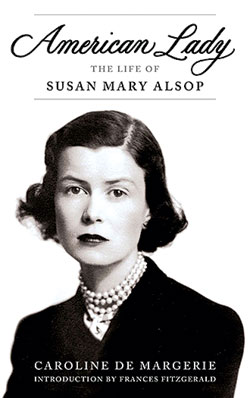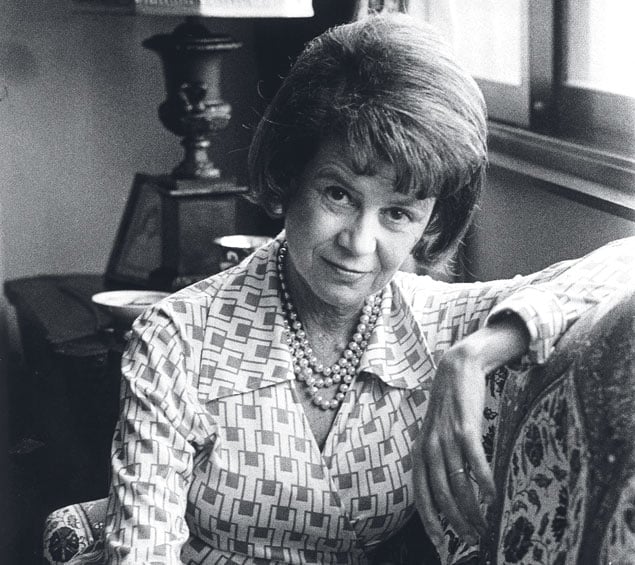Henry James taught us, in books like Daisy Miller and The Portrait of a Lady, that bold American women should stay away from the Continent. But Caroline de Margerie’s compact, entertaining American Lady: The Life of Susan Mary Alsop is a reminder that there’s at least one exception. Alsop certainly “survived Old Europe,” de Margerie writes. “She had even, modestly but undeniably, been a success.”
A descendant of Founding Father John Jay, Alsop was born in Rome in 1918, the daughter of an American diplomat who, the author writes, “played polo on the shores of the Bosporus” and a mother whose family was “famous for having sent seventeen men to fight on the Union side in the Civil War.” In 1945, Alsop moved to Paris with her first husband, Bill Patten, who worked for the State Department. She quickly learned to dazzle the City of Light. Soon, de Margerie says, Balenciaga was “selling [Alsop] dresses at a special price for her to wear at society affairs as a mannequin du monde.”
After Patten’s death in 1960, Alsop returned to Washington and was promptly proposed to by columnist Joseph Alsop, who had confessed to her he was gay. But because the social and political benefits of their union outweighed the costs, they married and went on to rule Washington society.
American Lady would have benefited from more quotes from its subject, but de Margerie colorfully unpacks the details of Alsop’s life. Of her affairs with aristocratic Englishmen, de Margerie writes, “When it came to love, she was an Anglophile and walked on Pall Mall”—the London street lined with gentlemen’s clubs. Of Alsop’s circle as debutantes: “The music seemed made for them, as did the summer nights, when champagne-tinted moonlight cast shadows into which they could stray with foolish young men.”
Later in life, Alsop built a solid writing career, “all while maintaining one of Washington’s most important political salons.” How did she do it? “Oh, just give them plenty of booze,” Alsop said, “and hope it will go.”
John Wilwol can be reached by e-mail at jpw1922@gmail.com and on Twitter at @johnwilwol.
This article appears in the November 2012 issue of The Washingtonian.

Publisher:
Viking Adult
Price:
$26.95


















